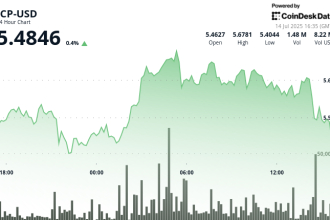GENIUS Act Signed Into Law: Ripple Eyes Stablecoin Market
On Friday, President Donald Trump signed the Groundbreaking Efficient Network Utility and Stability (GENIUS) Act into law, providing a clear regulatory framework for stablecoin issuers and lending platforms. While offering a pathway for Ripple’s new stablecoin, the bill is unlikely to cause significant ripple effects in XRP’s price.
Ripple Well-Positioned for Institutional Adoption
Analysts suggest the legislation holds competitive advantages for established stablecoins like USDC and RLUSD. “Ripple is uniquely positioned to benefit from this new legislation,” Austin King, co-founder of Omni Network, stated. He believes the law helps “USDC and RLUSD” gain an edge in attracting institutional users, where substantial value is generated.
Ripple’s native U.S. stablecoin, RLUSD, is designed to directly challenge competitors like USDC and PayPal USD, potentially establishing the company as an “on-shore liquidity provider,” according to Yuri Brisov of Digital & Analogue Partners. This strategy could see Ripple reconfigure itself as a core infrastructure provider within the U.S. financial system.
XRP’s Regulatory Status Remains Ambiguous
Though the law governs Ripple’s stablecoin, the litigation’s central issue remains unresolved: the SEC lawsuit contesting XRP’s classification. The law does not define XRP itself, leaving its legal status under SEC interpretation unchanged.
“XRP is not deemed a security when sold programmatically on exchanges, but it “may constitute a security in institutional placements,”” noted Brisov. He warned that classification “depends on sales context and leaves future interpretations open.”
Consequently, XRP analysts predict continued dominance as a bridge token. Market mechanics involving XRP burns during RLUSD minting offer only a fraction of the total supply reduction. David Schwartz, Ripple’s CTO, previously indicated such token burning would not significantly impact supply.
The future regulatory status of XRP depends on broader proposed legislation, like the CLARITY Act, which could establish a pathway for digital assets to transition from securities to commodities. Such clarity could potentially facilitate “broader tokenization strategies for Ripple.”











